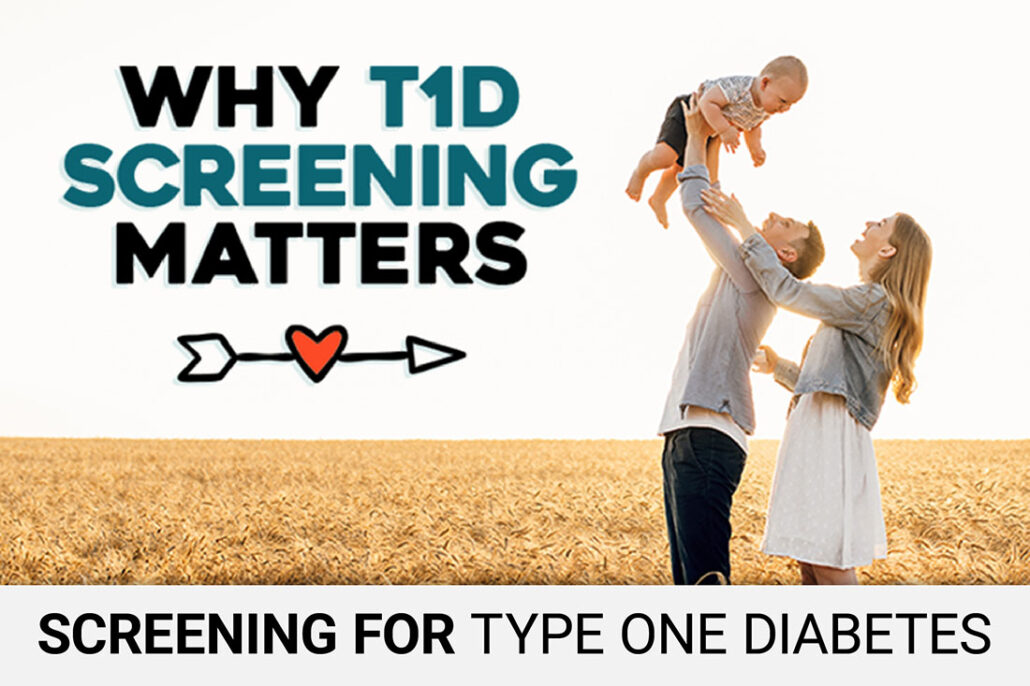How To Screen for Type 1 Diabetes: A Step-By-Step Guide
Learn About the Three Different Ways You Can Screen for Type 1 Diabetes Including At Home Kits and Lab Testing
Explore with this video:
✔ Why screening matters: 15x higher risk for those with first-degree relatives who have T1D
✔ Three different screening options explained: research programs, doctor’s office, or private lab testing
✔ Step-by-step guide to ordering and using a home testing kit, including costs and insurance coverage
✔ How to interpret antibody test results and what positive tests mean for your future
✔ Information about Tzield (teplizumab), the new FDA-approved therapy that can delay T1D onset
Type 1 diabetes can develop at any age, with over 50% of diagnoses occurring in adults. Early detection through antibody screening provides invaluable time for education and preparation before symptoms appear. Dr. Steve Edelman and Dr. Jeremy Pettus, both endocrinologists living with T1D, walk you through the entire screening process at ScreenForType1.com. They explain how to order testing kits (including free options through research programs like TrialNet and ASK), what to expect during testing, and how to interpret results. Most importantly, they discuss how individuals with positive antibodies may qualify for new FDA-approved treatments that can delay the onset of type 1 diabetes by several years. Whether you’re concerned about your children’s risk or your own, this comprehensive guide removes the confusion from T1D screening and empowers you to take control of your health.
WANNA KEEP GOING? LEARN MORE WITH US!
Why More People Aren’t Screening for Type 1 Diabetes
Did you know that up to 90% of people diagnosed with type 1 diabetes don’t have a family history of the condition? Interestingly, if you have a first-degree family member with type 1 diabetes (your mom, dad, sister, brother, kids), you’re up to 15 times more likely to develop type 1. What that tells us is that screening for type 1 diabetes is especially important if you have a family history of the condition, but it’s also important even if you don’t!



I am close to type .I would like to try out a research
Are you looking for information on testing for type 1 diabetes autoantibodies?
I have LADA. I never know if your T1D info applies to me. Should my adult children get screened? Are the antibodies on the TrialNet kits the same ones they screen for LADA diagnosis? (GAD-65, IA-2 antibodies, ZNT8)?
Yes, but once you’re diagnosed with diabetes, LADA or otherwise, the titers of these autoantibodies fall off. The single best one to get is the GAD because those stay high the longest.
I have type one it’s pretty much controlled I still need help
Hi Brenda,
There’s a lot of great resources on our website for people living with type 1 diabetes. Please explore our video vault for information on a variety of topics: https://tcoyd.org/vv-t1d/
If there’s something in particular that you have a question on, let us know!
Please I need help please
Hi Lane,
What do you need help with?
How can I talk to you guys?
Hi Ian,
Typically if people have a question about their diabetes they post here on our blog and Dr. Edelman, Dr. Pettus, or one of our team members will respond as soon as we can. The doctor’s schedules are quite full, but you are welcome to call our office at 858-755-5683 if you have a question you would prefer to share over the phone.
I was dx with LADA in 1995 at age 35. Now am just about out of “gas”; on insulin pump, cgm. My 32 year old daughter has had some health issues. She went to new PCP and asked to have a type 1 screening panel done (she even had the list of labs to order). The PCP said that last he heard, type 1 diabetes was in kids with a virus….and that he had been a doctor longer than she had been alive. How do you deal with this?
Ignorance among physicians is not uncommon, however his attitude sucks. I would find someone who is more knowledgeable and willing to learn and work with your daughter. You could also reference articles from our website and Breakthrough T1D about the familial connection of T1D, and how it’s equally common in adults now as children.
How would I know if I should be tested for T1, or T2?
I’m new to the whole diabetes journey.